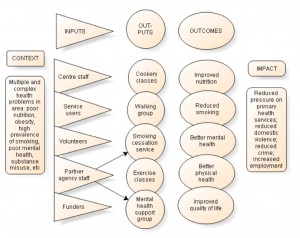 NVivo Indtroduction offers focuses on the requisite management decisions one should make at the beginning of one’s project such as what is my data?
NVivo Indtroduction offers focuses on the requisite management decisions one should make at the beginning of one’s project such as what is my data?
Should I code audio or transcripts and what are the advantages and limitations of either approach? How does the software work?
Why should I integrate my background information or demographics and what is auto-coding and how might it help to better understand my data and prepare it for the cycles of manual interpretive coding to follow?
How do I integrate my chosen methodological approach in using NVivo and reconcile it with the philosophical underpinnings to apply such methods as Grounded Theory, Discourse Analysis, Content Analysis, Thematic Analysis or Narrative Interpretive Methods as just some examples.
Day 1 has an emphasis on the conceptual although the afternoon session is more rooted in the practical. By the end of day 1, participants should be able to set-up an NVivo database, back it up, import their data, setup a coding structure and code their data to it and set up and integrate their demographics.
We have hired the services of an external facilitator to offer support in this for academic staff as part of the BRAD programme. Ben Meehan worked in industry for twenty six years. For the past thirteen years he has worked as an independent consultant in support of computer aided qualitative data analysis projects (CAQDAS). He is a QSR approved trainer and consultant. He has worked in all of the major universities and Institutes of Technology in Ireland and Northern Ireland. His work outside of the educational sector includes major global companies such as Intel where he consults in support of their on-going ethnographic research and the Centre for Global Health where he has recently worked in Tanzania, Malawi and Mozambique (2009) and in Ghana, Burkina Faso and Tanzania with the University of Heidelberg (2010) and Ethiopia for the Ethiopian Public Health Association (2011) and the Population Council, Zambia (2012). Apart from Africa, Ben regularly conducts workshops in Germany, France, UK, Northern Ireland, the US (Maryland, 2011, Yale, 2012) and Australia.
The session is on Wed 18th Novemeber 2015 09:00 – 16:00 on Talbot campus. There are limited spaces so please do ensure you get one by booking on the Organisational and Staff Development webpages.




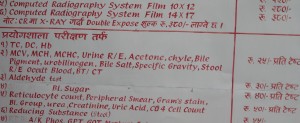
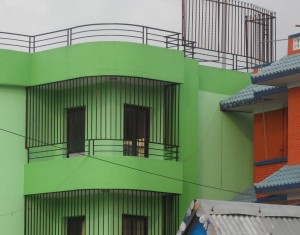
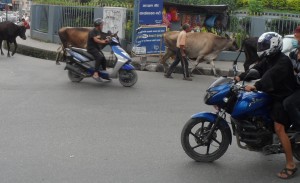 Today I attended a contract-signing meeting at the Department of Health, Physical and Population Education at Nepal’s oldest university, Tribhuvan University (TU).
Today I attended a contract-signing meeting at the Department of Health, Physical and Population Education at Nepal’s oldest university, Tribhuvan University (TU). Midwives (ANMs) about the key mental health issues in pregnancy and in the months after birth. A local charity Green Tara Nepal (GTN) will support the work through some of the curriculum design, sensitising UK volunteers to live in rural Nepal, assisting in translating, as well as helping to recruit the local health workers. The two UK universities have a long history of working with GTN as well as its sister organisation Green Tara Trust (GTT), a Buddhist charity based in London. The new project will be based in Nawalparasi in the sub-tropical part of the country bordering India. The target population consists of grassroot health care practitioners since there are no doctors in these rural villages.
Midwives (ANMs) about the key mental health issues in pregnancy and in the months after birth. A local charity Green Tara Nepal (GTN) will support the work through some of the curriculum design, sensitising UK volunteers to live in rural Nepal, assisting in translating, as well as helping to recruit the local health workers. The two UK universities have a long history of working with GTN as well as its sister organisation Green Tara Trust (GTT), a Buddhist charity based in London. The new project will be based in Nawalparasi in the sub-tropical part of the country bordering India. The target population consists of grassroot health care practitioners since there are no doctors in these rural villages.


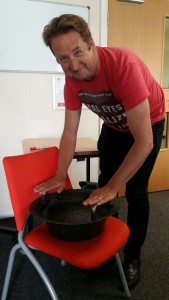
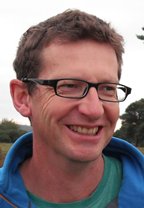

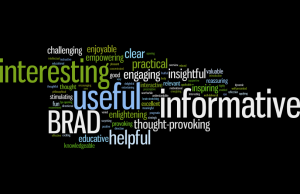













 New Seed Fund for Public Engagement with Research: Last Six Funding Opportunities Available
New Seed Fund for Public Engagement with Research: Last Six Funding Opportunities Available Congratulation on new interdisciplinary publication
Congratulation on new interdisciplinary publication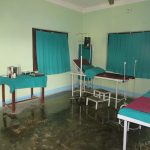 BU professor speaking at Aberdeen Centre for Women’s Health Research (ACWHR)
BU professor speaking at Aberdeen Centre for Women’s Health Research (ACWHR) Reminder: Opportunity to get more involved in preparing Social Work and Social Policy REF 2029 submission – impact and engagement
Reminder: Opportunity to get more involved in preparing Social Work and Social Policy REF 2029 submission – impact and engagement New seed fund for public engagement with research: open for applications
New seed fund for public engagement with research: open for applications Horizon Europe News – December 2023
Horizon Europe News – December 2023